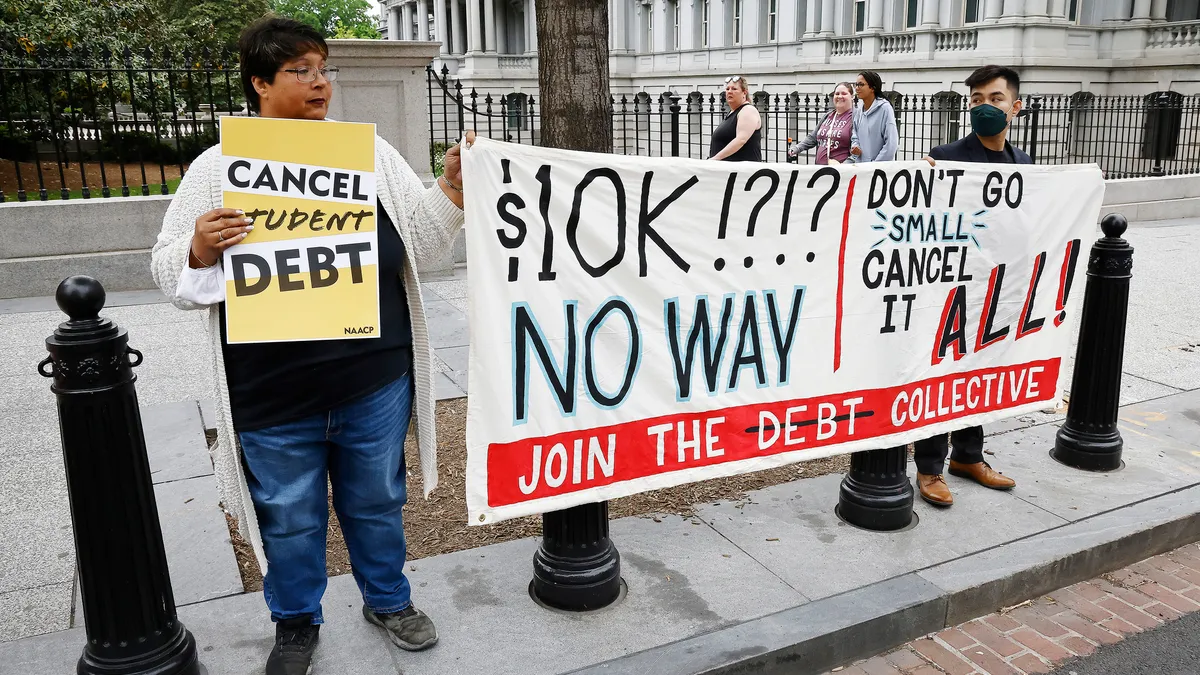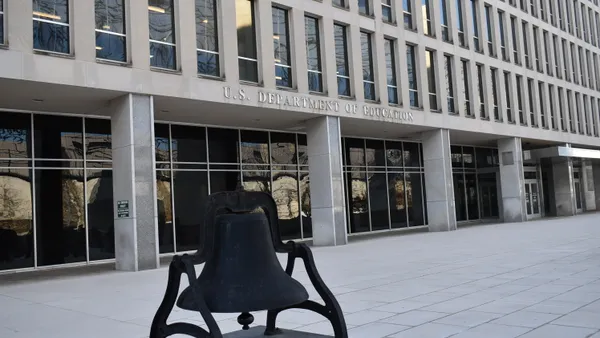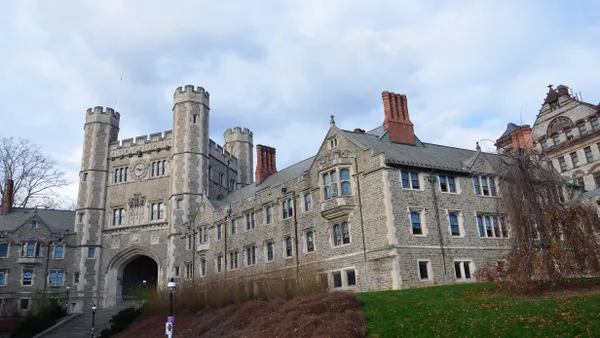Dive Brief:
- Adults who borrowed for college and still owe money are more pessimistic about higher ed's value than are those who don't have any debt, according to a report released this week by the Federal Reserve Board.
- Just 40% of borrowers with outstanding debt said the benefits of their education exceeded the costs. But 63% of those who'd borrowed and paid off their debt said the same, as did 51% of those who attended college but never took on debt.
- Overall, borrowers with outstanding debt were twice as likely to say the cost of their education outweighed the benefits than were borrowers who had repaid their debt.
Dive Insight:
The data comes from a survey the Federal Reserve Board has conducted every fall since 2013 to assess the economic well-being of U.S. households. This year's report summarizes responses from more than 11,000 people in late October and early November, which was before a surge in COVID-19 cases driven by the omicron variant.
The report arrives at a time when higher ed leaders are concerned about the value colleges provide for students — and public perceptions of that value. These discussions are intertwined with student borrowing, which has been at the center of national debate as the Biden administration weighs ideas for forgiving federal student loan debt. The administration is also considering how long to continue a pandemic-era freeze on federal loan payments and interest accumulation.
Students who completed different types of degrees had starkly different perceptions of higher ed based on whether they had debt or not. Among students who'd completed a bachelor's degree or higher, 46% who currently have debt said the benefits of higher ed exceeded the costs. But 72% of those who never had debt said the benefits of higher ed were greater, as did 74% of those who'd repaid debts.
A similar but smaller split existed among those who'd earned associate degrees. While 31% of associate degree holders with debt said the benefits of higher ed outweighed the costs, 49% of those who'd repaid debt or never had debt said the same.
"This gap indicates the extent to which perceptions of higher education are linked to whether individuals had to borrow for their education, and whether the returns on their education were sufficient for them to repay their student loans," the report said.
About one in three adults who attended college but didn't earn a degree said the benefits outweighed the costs.
The report also looks at how many adults took on debt for their education, how much they owe and the different forms of borrowing they used.
Nearly all of those with outstanding debt from their education, 96%, had student loans. But education debt also includes credit card borrowing, reported by 19% of those with education debt, home equity loans, reported by 4%, and other loans, reported by 11%.
Most borrowers owe less than $25,000. A quarter of borrowers with outstanding debt had less than $10,000, another 19% had between $10,000 and $19,999, and 15% owed between $20,000 and $29,999.
At the higher end of borrowing, just 10% owed $100,000 or more, 5% owed $75,000 to $99,999, and 10% owed $50,000 to $74,999. That leaves about 13% owing between $30,000 and $49,999.
Among all adults, 30% reported taking on at least some debt for their education. Of college-goers, more than 40% said they took on some debt.
One in five college attendees still owed money, while 22% who borrowed had fully repaid their education debts.
Those who attended for-profit colleges had greater difficulty repaying loans, even after accounting for differences in race and ethnicity, parental education, whether a college was a two-year or four-year institution, and the institution's selectivity.
"This suggests that the high payment difficulty rates for attendees of for-profit institutions reflect characteristics of the schools and is not simply due to the characteristics of their students," the report said.
Over the course of the pandemic, adults with outstanding educational debt reported that their financial well-being improved. Almost three-quarters of adults who went to college and had outstanding student loan debt, 73%, said they were doing at least OK financially in 2021. That was up from 65% who said the same in 2019.
Financial improvements were reported at all education levels among those with outstanding debt, from those with some college but no degree to those with a bachelor's degree or higher.
This is consistent with the federal student loan payment pause, the report noted. Adults who didn't borrow or who had repaid student loan debts didn't report similar improvements.















